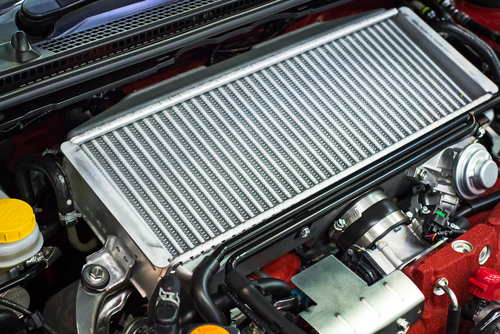Car radiator additives are sold and advertised as products that can improve the performance of a car’s engine cooling system. But how do car radiator additives work? And how can you choose the right option for your vehicle?
What are car radiator additives?
Car radiator additives are often referred to as radiator sealants or cooling system additives. These can be used to address various issues, such as sealing small leaks, improving heat dissipation, and preventing corrosion within the radiator and engine cooling system. They are available in different forms, including liquids and powders, and are designed to be mixed with the engine coolant to circulate throughout the cooling system, addressing potential problems.
What are the different types of additives?
There are a number of different types of car radiator additive, and these include:
- Coolant additives- These additives enhance the coolant’s ability to lower the engine’s temperature. As such, they often contain chemicals that increase heat dissipation, helping the engine run cooler. These can be very effective in extreme heat or high performance conditions, where engines are put under significant strain. Some car owners find that these additives help reduce engine temperature by a few degrees, which may improve performance and reduce the risk of overheating in demanding driving conditions. However, in the UK the temperatures are not often extreme enough for coolant additives to make a noticeable impact. In fact, these are most beneficial in situations where extra cooling is necessary, such as towing heavy loads or driving in hot climates.
- Corrosion inhibitors- These additives help prevent rust, scale, and other forms of corrosion inside the cooling system. This can be very beneficial, as over time, metals in the radiator and engine can corrode due to the high heat and presence of water. As such, corrosion inhibitors can extend the life of the cooling system by protecting against rust and chemical reactions that damage components. However, it’s worth noting that high-quality coolant itself often contains corrosion inhibitors, so if your car already has quality coolant, additional corrosion inhibitors may have limited added value.
- Leak sealants- Leak-sealing additives are used as a temporary fix for minor leaks in the radiator or hoses. They contain compounds that can plug small holes or cracks, reducing coolant loss and keeping the cooling system sealed. However, these additives should be seen as a stop-gap measure rather than a long-term solution. Some mechanics warn that leak sealants may cause clogging in other parts of the cooling system, especially in older cars, potentially leading to costly repairs. While they can help in an emergency, relying on them over a professional repair is not recommended.
- Water pump lubricants- Some additives contain lubricating elements to reduce wear and tear on the water pump and other moving parts within the cooling system. These can be very effective for reducing friction in the cooling system. However, they are typically less essential in modern vehicles, since most coolants are designed to provide this lubrication. These additives are more beneficial for older vehicles or those with high mileage, where additional lubrication might extend the water pump’s lifespan.
Here at MRS Heat Transfer we are radiator, car heater, intercooler, generator radiator, and air conditioning experts, and we have the skills, knowledge and expertise to resolve any generator radiator problem. Why not get in touch today to find out more?

